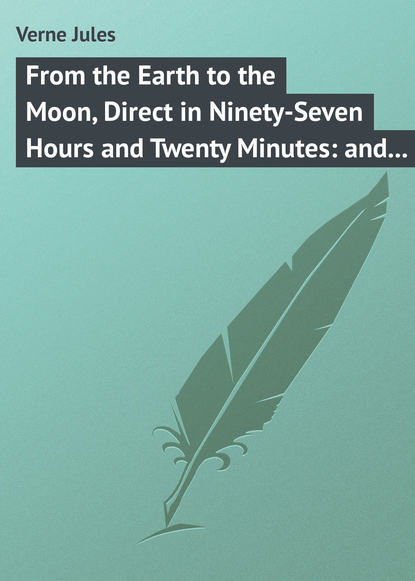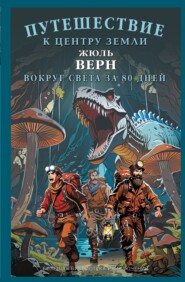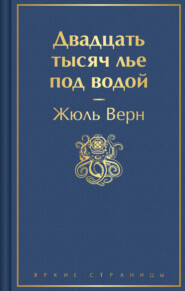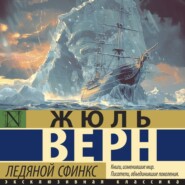По всем вопросам обращайтесь на: info@litportal.ru
(©) 2003-2024.
✖
From the Earth to the Moon, Direct in Ninety-Seven Hours and Twenty Minutes: and a Trip Round It
Настройки чтения
Размер шрифта
Высота строк
Поля
But on this day, 1st December, such sounds were rare. No one thought of eating or drinking, and at four p.m. there were vast numbers of spectators who had not even taken their customary lunch! And, a still more significant fact, even the national passion for play seemed quelled for the time under the general excitement of the hour.
Up till nightfall, a dull, noiseless agitation, such as precedes great catastrophes, ran through the anxious multitude. An indescribable uneasiness pervaded all minds, an indefinable sensation which oppressed the heart. Every one wished it was over.
However, about seven o'clock, the heavy silence was dissipated. The moon rose above the horizon. Millions of hurrahs hailed her appearance. She was punctual to the rendezvous, and shouts of welcome greeted her on all sides, as her pale beams shone gracefully in the clear heavens. At this moment the three intrepid travellers appeared. This was the signal for renewed cries of still greater intensity. Instantly the vast assemblage, as with one accord, struck up the national hymn of the United States, and "Yankee Doodle," sung by five millions of hearty throats, rose like a roaring tempest to the farthest limits of the atmosphere. Then a profound silence reigned throughout the crowd.
The Frenchman and the two Americans had by this time entered the enclosure reserved in the centre of the multitude. They were accompanied by the members of the Gun Club, and by deputations sent from all the European Observatories. Barbicane, cool and collected, was giving his final directions. Nicholl, with compressed lips, his arms crossed behind his back, walked with a firm and measured step. Michel Ardan, always easy, dressed in thorough traveller's costume, leathern gaiters on his legs, pouch by his side, in loose velvet suit, cigar in mouth, was full of inexhaustible gaiety, laughing, joking, playing pranks with J. T. Maston. In one word, he was the thorough "Frenchman" (and worse, a "Parisian") to the last moment.
Ten o'clock struck! The moment had arrived for taking their places in the projectile! The necessary operations for the descent, and the subsequent removal of the cranes and scaffolding that inclined over the mouth of the Columbiad, required a certain period of time.
Barbicane had regulated his chronometer to the tenth part of a second by that of Murchison the engineer, who was charged with the duty of firing the gun by means of an electric spark. Thus the travellers enclosed within the projectile were enabled to follow with their eyes the impassive needle which marked the precise moment of their departure.
The moment had arrived for saying "Good-bye!" The scene was a touching one. Despite his feverish gaiety, even Michel Ardan was touched. J. T. Maston had found in his own dry eyes one ancient tear, which he had doubtless reserved for the occasion. He dropped it on the forehead of his dear president.
"Can I not go?" he said, "there is still time!"
"Impossible, old fellow!" replied Barbicane. A few moments later, the three fellow-travellers had ensconced themselves in the projectile, and screwed down the plate which covered the entrance-aperture. The mouth of the Columbiad, now completely disencumbered, was open entirely to the sky.
The moon advanced upwards in a heaven of the purest clearness, outshining in her passage the twinkling light of the stars. She passed over the constellation of the Twins, and was now nearing the halfway point between the horizon and the zenith. A terrible silence weighed upon the entire scene! Not a breath of wind upon the earth! not a sound of breathing from the countless chests of the spectators! Their hearts seemed afraid to beat! All eyes were fixed upon the yawning mouth of the Columbiad.
Murchison followed with his eye the hand of his chronometer. It wanted scarce forty seconds to the moment of departure, but each second seemed to last an age! At the twentieth there was a general shudder, as it occurred to the minds of that vast assemblage that the bold travellers shut up within the projectile were also counting those terrible seconds. Some few cries here and there escaped the crowd.
"Thirty-five! – thirty-six! – thirty-seven! – thirty-eight! – thirty-nine! – forty! Fire!!!"
Instantly Murchison pressed with his finger the key of the electric battery, restored the current of the fluid, and discharged the spark into the breach of the Columbiad.
An appalling unearthly report followed instantly, such as can be compared to nothing whatever known, not even to the roar of thunder, or the blast of volcanic explosions! No words can convey the slightest idea of the terrific sound! An immense spout of fire shot up from the bowels of the earth as from a crater. The earth heaved up, and with great difficulty some few spectators obtained a momentary glimpse of the projectile victoriously cleaving the air in the midst of the fiery vapours!
CHAPTER XXVII.
FOUL WEATHER
At the moment when that pyramid of fire rose to a prodigious height into the air, the glare of the flame lit up the whole of Florida; and for a moment day superseded night over a considerable extent of the country. This immense canopy of fire was perceived at a distance of 100 miles out at sea, and more than one ship's captain entered in his log the appearance of this gigantic meteor.
The discharge of the Columbiad was accompanied by a perfect earthquake. Florida was shaken to its very depths. The gases of the powder, expanded by heat, forced back the atmospheric strata with tremendous violence, and this artificial hurricane rushed like a waterspout through the air.
Not a single spectator remained on his feet! Men, women, children, all lay prostrate like ears of corn under a tempest. There ensued a terrible tumult; a large number of persons were seriously injured. J. T. Maston, who, despite of all dictates of prudence had kept in advance of the mass, was pitched back 120 feet, shooting like a projectile over the heads of his fellow-citizens. Three hundred thousand persons remained deaf for a time, and as though struck stupefied.
As soon as the first effects were over, the injured, the deaf, and lastly, the crowd in general, woke up with frenzied cries. "Hurrah for Ardan! Hurrah for Barbicane! Hurrah for Nicholl!" rose to the skies. Thousands of persons, noses in air, armed with telescopes and race-glasses, were questioning space, forgetting all contusions and emotions in the one idea of watching for the projectile. They looked in vain! It was no longer to be seen, and they were obliged to wait for telegrams from Long's Peak. The Director of the Cambridge Observatory was at his post on the Rocky Mountains; and to him, as a skilful and persevering astronomer, all observations had been confided.
But an unforeseen phenomenon came in to subject the public impatience to a severe trial.
The weather, hitherto so fine, suddenly changed; the sky became heavy with clouds. It could not have been otherwise after the terrible derangement of the atmospheric strata, and the dispersion of the enormous quantity of vapour arising from the combustion of 200,000 lbs. of pyroxyle!
On the morrow the horizon was covered with clouds – a thick and impenetrable curtain between earth and sky, which unhappily extended as far as the Rocky Mountains. It was a fatality! But since man had chosen so to disturb the atmosphere, he was bound to accept the consequences of his experiment.
Supposing, now, that the experiment had succeeded, the travellers having started on the 1st of December, at 10h. 46m. 40s. p.m., were due on the 4th at 0h. p.m. at their destination. So that up to that time it would have been very difficult after all to have observed, under such conditions, a body so small as the shell. Therefore they waited with what patience they might.
From the 4th to the 6th of December inclusive, the weather remaining much the same in America, the great European instruments of Herschel, Rosse, and Foucault, were constantly directed towards the moon, for the weather was then magnificent; but the comparative weakness of their glasses prevented any trustworthy observations being made.
On the 7th the sky seemed to lighten. They were in hopes now, but their hope was of but short duration, and at night again thick clouds hid the starry vault from all eyes.
Matters were now becoming serious, when on the 9th, the sun reappeared for an instant, as if for the purpose of teasing the Americans. It was received with hisses; and wounded, no doubt, by such a reception, showed itself very sparing of its rays.
On the 10th, no change! J. T. Maston went nearly mad, and great fears were entertained regarding the brain of this worthy individual, which had hitherto been so well preserved within his gutta-percha cranium.
But on the 11th one of those inexplicable tempests peculiar to those intertropical regions was let loose in the atmosphere. A terrific east wind swept away the groups of clouds which had been so long gathering, and at night the semi-disc of the orb of night rode majestically amidst the soft constellations of the sky.
CHAPTER XXVIII.
A NEW STAR
That very night, the startling news so impatiently awaited, burst like a thunderbolt over the United States of the Union, and thence, darting across the ocean, ran through all the telegraphic wires of the globe. The projectile had been detected, thanks to the gigantic reflector of Long's Peak! Here is the note received by the Director of the Observatory of Cambridge. It contains the scientific conclusion regarding this great experiment of the Gun Club.
"Long's Peak, December 12.
"To the Officers of the Observatory of Cambridge.
"The projectile discharged by the Columbiad at Stones Hill has been detected by Messrs. Belfast and J. T. Maston, 12th December, at 8.47 p.m., the moon having entered her last quarter. This projectile has not arrived at its destination. It has passed by the side; but sufficiently near to be retained by the lunar attraction.
"The rectilinear movement has thus become changed into a circular motion of extreme velocity, and it is now pursuing an elliptical orbit round the moon, of which it has become a true satellite.
"The elements of this new star we have as yet been unable to determine; we do not yet know the velocity of its passage. The distance which separates it from the surface of the moon may be estimated at about 2833 miles.
"However, two hypothesis come here into our consideration.
"1. Either the attraction of the moon will end by drawing them into itself, and the travellers will attain their destination; or, —
"2. The projectile, following an immutable law, will continue to gravitate round the moon till the end of time.
"At some future time, our observations will be able to determine this point, but till then the experiment of the Gun Club can have no other result than to have provided our solar system with a new star.
"J. Belfast."
To how many questions did this unexpected denouement give rise? What mysterious results was the future reserving for the investigations of science? At all events, the names of Nicholl, Barbicane, and Michel Ardan were certain to be immortalized in the annals of astronomy!
When the despatch from Long's Peak had once become known, there was but one universal feeling of surprise and alarm. Was it possible to go to the aid of these bold travellers? No! for they had placed themselves beyond the pale of humanity, by crossing the limits imposed by the Creator on his earthly creatures. They had air enough for two months; they had victuals enough for twelve; – but after that? There was only one man who would not admit that the situation was desperate, – he alone had confidence; and that was their devoted friend J. T. Maston.
Besides, he never let them get out of sight. His home was henceforth the post at Long's Peak; his horizon, the mirror of that immense reflector. As soon as the moon rose above the horizon, he immediately caught her in the field of the telescope; he never let her go for an instant out of his sight, and followed her assiduously in her course through the stellar spaces. He watched with untiring patience the passage of the projectile across her silvery disc, and really the worthy man remained in perpetual communication with his three friends, whom he did not despair of seeing again some day.
"Those three men," said he, "have carried into space all the resources of art, science, and industry. With that, one can do anything; and you will see that, some day, they will come out all right."
ROUND THE MOON:
A Sequel To
FROM THE EARTH TO THE MOON
—

















